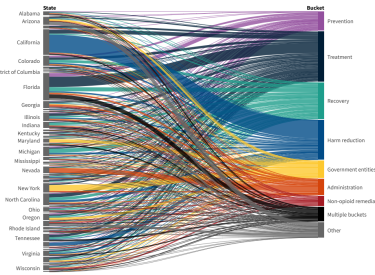
A Commitment to Health Equity From Our Founder
Dear colleagues and friends,
Shatterproof is devastated at the blatant brutality in the murder of George Floyd, the deaths of David McAtee, Breonna Taylor, and countless other Black people whose lives were ended by police violence. We know that these are extremely stressful and troubling times for you, your families, and our communities. We share your grief and anger as we honor the lives that have been tragically taken due to acts of racism and stand beside you in the fight for justice.
Addiction impacts all people, but like most health conditions in the United States, the negative impacts of this disease on Black and Latino communities are disproportionate. Therefore, Shatterproof denounces racism and is committed to listening, learning, supporting, and advocating for health equity. Structural racism underlies the various responses to the phases of the addiction epidemic in America and it can only be reversed by taking an anti-racist approach. In the 1980s, when addiction was perceived as rampant amongst communities of color, the crisis was met with stigmatizing and discriminatory policies. Now, the opioid epidemic has reframed addiction as a disease, while simultaneously whitewashing the response by continuing to ignore the crisis within communities of color. Despite having higher increases in opioid overdose deaths tied to fentanyl, Black Americans have significantly lower access to treatment. For example, white patients are 35 times more likely than Black patients to receive buprenorphine, one of the proven medications for treating opioid use disorder. Eliminating the disparities of these metrics must be a part of the addiction response.
Black Americans are disproportionately discriminated against within the criminal legal system, which is intricately linked to addiction and drug use. According to the Drug Policy Alliance, Black and Latino people experience discrimination at every stage of the judicial system and are more likely to be stopped, searched, arrested, convicted, and harshly sentenced for drug-related offenses. These stigmatizing laws are a product of the War on Drugs and further reinforces systemic racism. Compared to white Americans, Black and Latino Americans are six times more likely to be incarcerated for a drug-related offense, despite having similar rates of substance use. Prosecutors are twice as likely to pursue a mandatory minimum sentence for Black people than white people who commit the same offenses, encumbering them with a lifelong criminal record. Having a criminal record of any type impacts access to addiction treatment services and other health care, employment opportunities, access to housing, the ability to vote, and much more. Reversing the addiction crisis in America is our mission, and we cannot achieve this without condemning racism and committing to changing these stigmatizing policies.
At Shatterproof, we acknowledge that diversity, equity, and inclusion are critical to our success. We are committed to conducting ongoing diversity trainings with our staff and elevating our focus on bridging the gap of the disparities faced by Black Americans when it comes to substance use disorder. We stand ready to serve as allies to the advocacy community in this larger fight and to continue our work for an equitable addiction treatment system.
In solidarity,
Gary Mendell
Founder and CEO, Shatterproof



